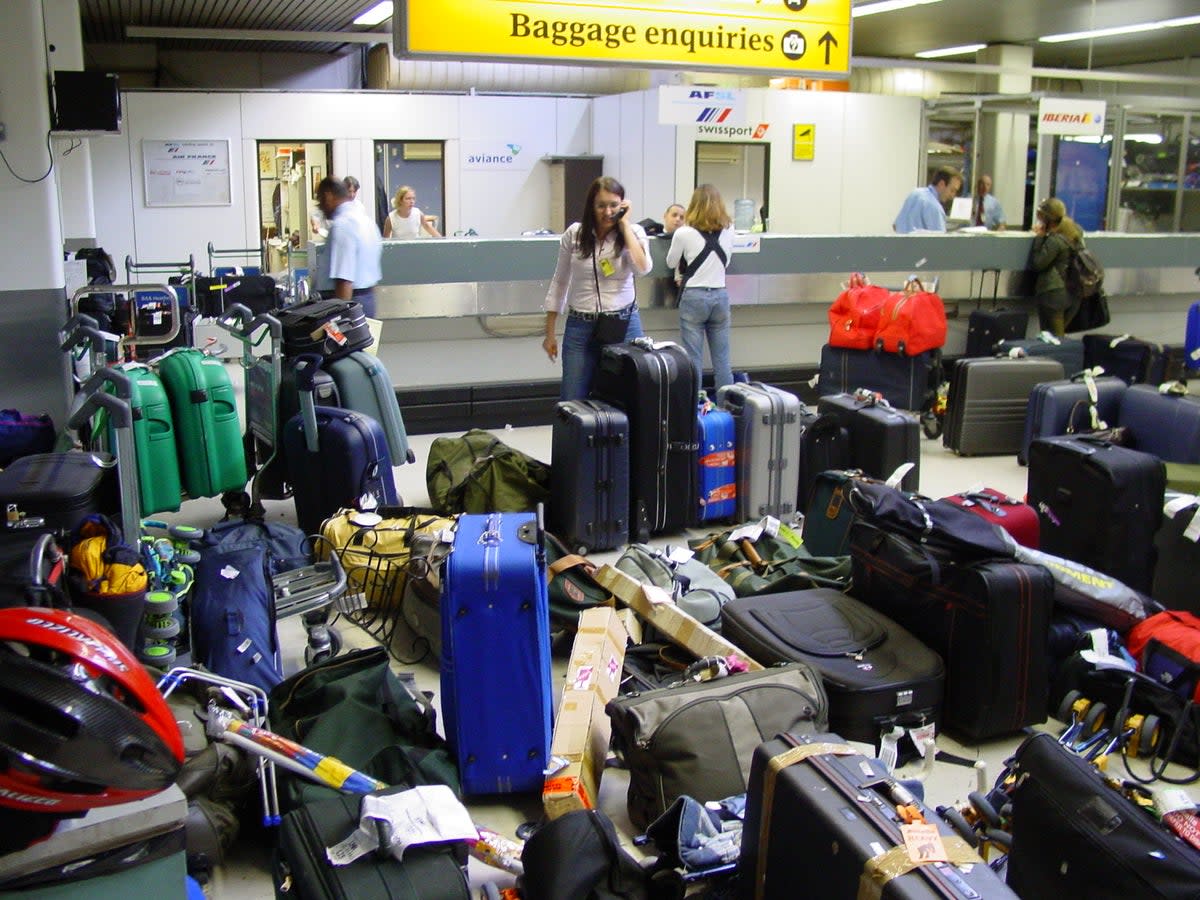How to cut the chance of losing your baggage when flying – and what to do if it strays

How many pieces of luggage go astray each day around the world? Not 1,000; not 10,000; but 100,000, according to the latest report by the aviation data specialists at Sita.
While things improved in 2023 compared with the previous year, on average, seven bags go missing for every 1,000 checked in. That means on a typical wide-bodied plane, two or three people will have that sinking feeling on arrival at the baggage carousel when their luggage fails to appear.
Time then to consider how to minimise the risk of losing bags – and what to do if your case does go astray.
How can I increase the chance my luggage will be there at the end of the trip?
If you possibly can, don’t check anything in. Some airlines have an extremely generous allowance – for example British Airways allows you to take two pieces weighing a mighty 23kg each. If you are in charge of your own bags, you can ensure they stay with you.
Impossible? Well, if you are checking something in, assume that you will never see the case or its contents again. That should help minimise the harm of lost luggage. You will pack in a way that means you won’t lose something irreplaceable: keep all essentials in your carry-on baggage.
When booking flights, be aware many of the bags that go missing are lost at connecting hubs: London Heathrow, Paris CDG, Amsterdam, Frankfurt, Istanbul, Dubai…
So you might want to pay a premium for a direct flight rather than one where you are changing planes.
To maximise the chance that you will be reacquainted with your case if it does go astray, assume all external tags will be torn off. Inside the bag, tape a big piece of paper with your name, physical and email address and phone number in indelible ink.
My bag hasn’t turned up. What do I do now?
Because it is such a regular occurrence, the procedure is wearily familiar. Each airline has a representative in the baggage hall run by ground handlers. If your case doesn’t appear, then you can talk to them and begin the official procedure: filling in a report that has all your personal details and a description of the lost case.
If there’s no one there, the airline will have a lost-baggage portal online where you can fill out a report. You must do that as soon as possible – certainly within 24 hours.
Am I ever going to see my case again? According to easyJet: “More than 90 per cent our delayed bags are found by our airport teams within the first five days.” Assuming you’re in that position, the airline is responsible for getting the bag back to you.
Meanwhile, if you’re on holiday or a business trip, you can buy a modest amount of toiletries and basic clothing and claim it back from the carrier. Some airlines put a cap on how much they will pay out – though if circumstances dictate you need to spend more (eg buying a new suit because you have a job interview) you can argue your corner.
How useful are trackers placed inside luggage?
Some travellers swear by them because you can tell where your baggage is – usually left behind at the departure airport or in transit at a major hub.
But even if you know where it is, that may not help. We’ve seen baggage mountains at London Heathrow and Edinburgh airports in which some tags were showing up, but which individual passengers were not allowed to access.
Is it worth paying extra insurance for lost luggage?
If a piece of luggage goes permanently astray, the Montreal Convention on aviation includes rules for paying out up to £1,000 in compensation. If there are specific items in your baggage that are worth more than that, get a travel insurance policy that will cover them.
Are economy airlines more likely to lose luggage?
No, rather less likely: they operate overwhelmingly point-to-point flights with much less chance of mishandling baggage. And because of the obsession with keeping costs down, budget airlines are going to do all they can to reduce the amount spent on couriers delivering misrouted bags.
What if another passenger mistakenly took your suitcase off the carousel?
That would mean you haven’t (for example) tied a yellow ribbon around the handle, or applied a very noticeable sticker to your case.
Sometimes if there’s just you, the carousel and a single piece of luggage that looks like yours, the airport staff will contact the person who has clearly gone away inadvertently with yours. But there’s little you can do about criminals who set out to steal luggage.


